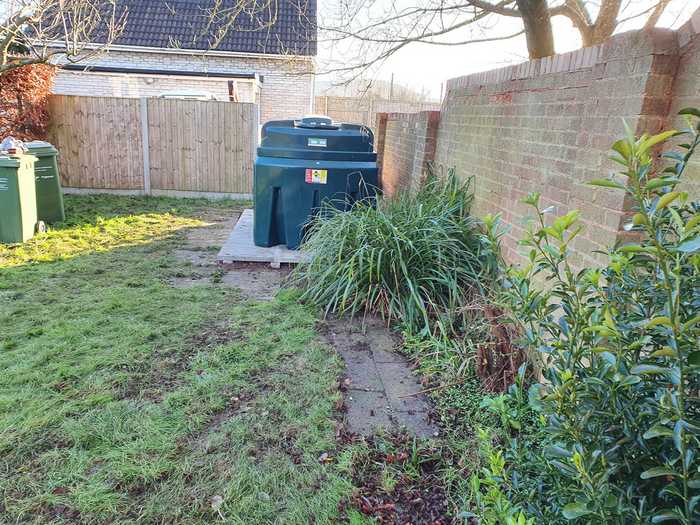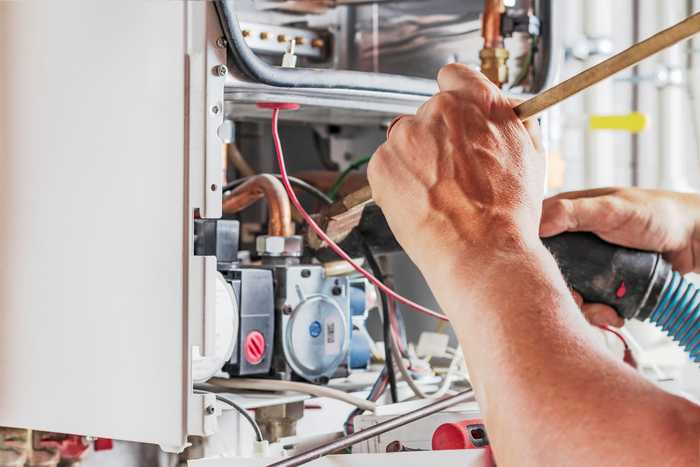4 Steps to Prepare Your Heating Oil Tank For Winter

As the cold November snap approaches and daylight hours start to dwindle, households across the country are beginning to fire up their heating systems for the first time in months. It’s the time of year when oil tank owners are ordering their winter supply and boilers are put to work after a long summer break.
After a period of inactivity, now is the perfect time to conduct maintenance checks on your oil tanks, to ensure that no damage has been sustained and that there are no signs of leaks. Indeed, the costs of a leak, both environmental and economic, can be disastrous in the long term. From an ecological point of view, even as little as two litres of oil spillage can contaminate an area the size of an Olympic-sized pool, so it’s fundamental to spot the signs early.
However, getting your heating oil tank ready for winter isn’t just about checking for leaks. You should also think about servicing your tank and put in measures to safeguard it against fuel theft.
Visually inspect your tank
The first, most simple method of preparing your tank is to conduct a visual inspection; looking out for cracks or other signs of deterioration before they become a more substantial issue in the future. Remember, extra vigilance is required before winter sets in. After a hot summer, where sun exposure is at its highest, cracks can appear in plastic tanks if not careful.
Meanwhile, there are some obvious telltale signs that your oil tank is leaking, such as the strong, unmistakable odour of oil, and black stains on the grass or the areas surrounding your tank.
Replacing your tank
If your plastic heating oil tank is exhibiting signs of damage, such as cracks or splits, it should always be replaced. There’s no long-term economic or safety advantage in attempting to ‘patch up’ your tank, and doing so could have a negative effect on your insurance.
When hiring a professional like CT Tanks to replace your heating oil tank, you can be sure that your new product will be installed in line with all the latest fuel storage regulations—mounted on a robust, hardwearing oil tank base to suit your specific needs. Whatever the size and dimensions of your outdoor space, rest assured we’ll find the perfect oil tank solution for you.

Get your boiler serviced
On top of carrying out your own regular visual inspections of your oil tank, you should also consider seeking the advice and expertise of an oil heating technician to conduct a yearly service of your boiler to ensure there are no potential issues. They will be able to check for water in your tank while examining pipes, gauges, and the boiler itself—to not only mitigate the chances of future problems but also to improve the efficiency of your heating system.
Autumn is the perfect time to book your service; after the summer months of inaction and before your oil tank and boiler require optimal levels of efficiency and performance during the winter.
Secure your tank against fuel theft
Oil tank theft is a major, continually increasing issue here in the UK and, with fuel prices also still on the rise, protecting this precious commodity is an ongoing concern. Using a sturdy padlock on lids and access points is a straightforward method of safeguarding your oil reserves from criminal activity. But also consider CCTV systems, security lighting and gravel paths to keep your fuel protected.
During winter, when your tank is likely to be at its fullest, the risk of becoming a target for oil thieves is at its highest. So, be sure to implement any or all of these measures to ward off opportunist criminals that may be operating in the area.
How can CT Tanks help?
If your oil tank is damaged or at the end of its life cycle, CT Tanks are industry leaders when it comes to professional tank installation. So, before the cold weather sets in, please don’t hesitate to get in touch, and we’ll ensure you’re safe and warm this winter. We’re always here to help.
Posted on October 19th 2022

